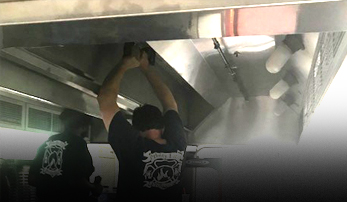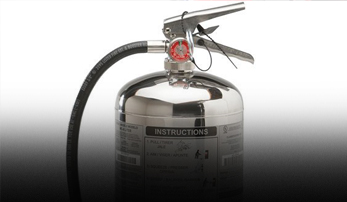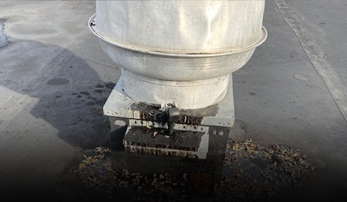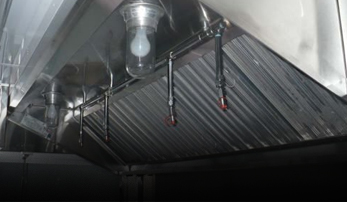Shifting Tides Evolving Priorities Reshape Industries and Deliver Breaking global news.
- Shifting Tides: Evolving Priorities Reshape Industries and Deliver Breaking global news.
- Geopolitical Realignment and Its Economic Repercussions
- Technological Disruption: The Accelerating Pace of Innovation
- The Evolving Consumer: Shifting Preferences and Values
- Supply Chain Resilience: Building Robust and Agile Networks
- The Future of Work: Adapting to New Realities
Shifting Tides: Evolving Priorities Reshape Industries and Deliver Breaking global news.
The rapid pace of change defines our current era, impacting industries and reshaping global priorities. Understanding these shifting tides is crucial for businesses and individuals alike. The constant flow of information, the rapid advancement of technology, and unforeseen global events all news contribute to a dynamic landscape where adaptability and awareness are paramount. Staying informed about these developments – current global events – is no longer a luxury but a necessity. The ability to analyze trends and anticipate future shifts is invaluable in navigating this complex world.
This article delves into the key factors driving these changes, examining their impact on various sectors and highlighting the importance of staying abreast of current events. We’ll explore how geopolitical factors, technological innovation, and evolving consumer behavior are converging to create new opportunities and challenges. It’s about understanding the broader context shaping economies and societies worldwide.
Geopolitical Realignment and Its Economic Repercussions
Global politics have become increasingly complex, characterized by shifting alliances and heightened tensions. The rise of new economic powers and the re-emergence of geopolitical competition are creating significant uncertainties. Trade wars, political instability, and international conflicts all have a direct impact on global markets and supply chains. Businesses must carefully assess these risks and develop strategies to mitigate their potential impact.
The ongoing conflicts and diplomatic efforts around the world are reshaping the international order, influencing economic policies and investment decisions. Sanctions, tariffs, and trade restrictions are becoming more common, forcing businesses to diversify their sourcing and distribution networks. The need for geopolitical intelligence and risk management has never been greater. Companies must invest in understanding these dynamics to make informed decisions.
Understanding the varying perspectives and overlapping interests of different nations is fundamental. Consider the intricate relationships between energy dependencies, political ideologies, and economic ambitions. These factors frequently contribute to instability and require constant monitoring for potential disruptions.
| Eastern Europe | Ongoing Conflict & Political Instability | Supply Chain Disruptions, Increased Energy Prices |
| South China Sea | Territorial Disputes & Military Build-up | Trade Route Blockages, Increased Regional Tensions |
| Middle East | Political Instability & Proxy Conflicts | Oil Price Volatility, Humanitarian Crisis |
Technological Disruption: The Accelerating Pace of Innovation
Technological advancements are driving rapid change across all industries. Artificial intelligence, machine learning, and automation are transforming how businesses operate and compete. The Fourth Industrial Revolution, characterized by the convergence of physical, digital, and biological technologies, is creating new opportunities for innovation and growth. But it also presents challenges for workforce development and adaptation.
The rise of the digital economy is reshaping consumer behavior and creating new business models. E-commerce, social media, and mobile technologies are empowering consumers and driving demand for personalized experiences. Businesses must embrace digital transformation and leverage data analytics to understand their customers and tailor their offerings. Those who fail to adapt will fall behind.
The rapid pace of technological change demands continuous learning and upskilling. The workforce must develop new skills to remain relevant in a rapidly evolving job market. Investing in education, training, and reskilling programs is crucial for ensuring a smooth transition to the future of work.
- Artificial Intelligence (AI)
- Blockchain Technology
- Internet of Things (IoT)
- Cloud Computing
- Biotechnology
The Evolving Consumer: Shifting Preferences and Values
Consumer preferences and values are changing rapidly, driven by factors such as demographics, social trends, and environmental concerns. Consumers are increasingly seeking experiences over material possessions, and they are more likely to support brands that align with their values. Sustainability, ethical sourcing, and social responsibility are becoming increasingly important considerations for consumers.
The rise of conscious consumerism is forcing businesses to rethink their strategies. Companies must demonstrate a commitment to environmental sustainability, social justice, and ethical business practices. Transparency and accountability are key to building trust with consumers. Greenwashing and deceptive marketing tactics will be quickly exposed and punished.
Personalization and customization are becoming essential for attracting and retaining customers. Consumers expect brands to understand their individual needs and preferences and to provide tailored experiences. Data analytics and customer relationship management (CRM) systems are essential tools for delivering personalized marketing and customer service.
Supply Chain Resilience: Building Robust and Agile Networks
Global supply chains have become increasingly complex and vulnerable in recent years. Disruptions caused by natural disasters, geopolitical events, and economic shocks have highlighted the need for greater resilience and agility. Businesses must diversify their sourcing, build buffer stocks, and invest in supply chain visibility technologies.
The COVID-19 pandemic exposed the fragility of many global supply chains, leading to shortages of essential goods and increased costs. Companies are now rethinking their sourcing strategies, bringing production closer to home (reshoring), and investing in regional supply chains. Building redundancy into supply chains is crucial for minimizing the impact of future disruptions.
Technology plays a key role in building supply chain resilience. Blockchain, artificial intelligence, and the Internet of Things (IoT) can provide real-time visibility into supply chain operations, enabling businesses to quickly identify and respond to potential disruptions. Utilizing such systems is paramount for modern, efficient commercial endeavors.
| Geopolitical Instability | Diversify Sourcing | Supply Chain Mapping Software |
| Natural Disasters | Build Buffer Stocks | Predictive Analytics |
| Cyberattacks | Strengthen Cybersecurity | Blockchain Technology |
The Future of Work: Adapting to New Realities
The nature of work is evolving rapidly, driven by technological advancements, demographic shifts, and changing worker expectations. Remote work, flexible work arrangements, and the gig economy are becoming more prevalent. Businesses must adapt to these new realities and create workplaces that attract and retain top talent.
The demand for skilled workers is increasing, while the supply of qualified candidates remains limited. Companies must invest in employee training and development programs to bridge the skills gap. Lifelong learning and continuous upskilling are becoming essential for success in the modern workplace.
The gig economy is offering new opportunities for flexible work arrangements, but it also raises concerns about worker rights and job security. Governments and businesses must work together to ensure that gig workers are adequately protected and that they have access to benefits such as healthcare and retirement savings.
- Invest in employee training.
- Embrace flexible work arrangements.
- Promote diversity and inclusion.
- Foster a culture of innovation.
- Prioritize employee well-being.
Staying informed about these interconnected issues requires a commitment to continuous learning and critical thinking. The complex interplay of these factors demands a holistic perspective, enabling businesses and individuals to navigate the shifting landscape and capitalize on emerging opportunities. It is through diligent observation and proactive adaptation that we can best position ourselves for success in an increasingly uncertain world.









Recent Comments